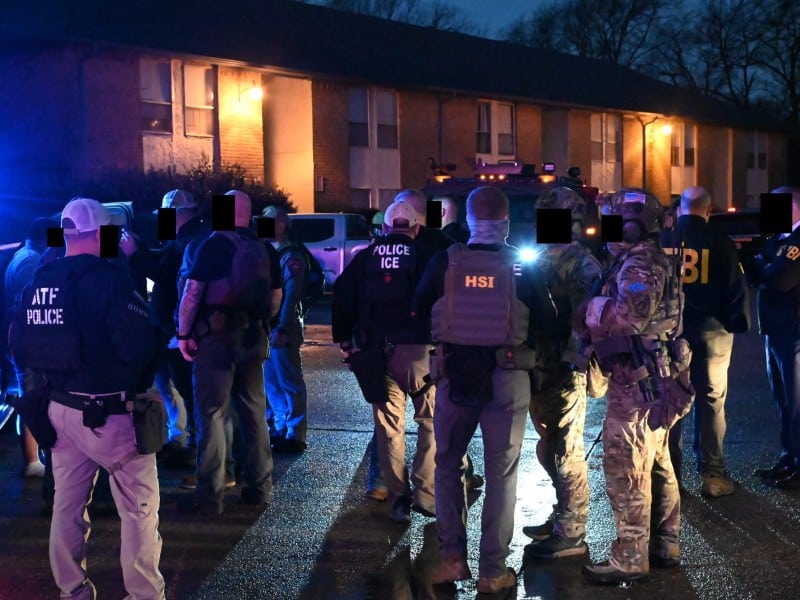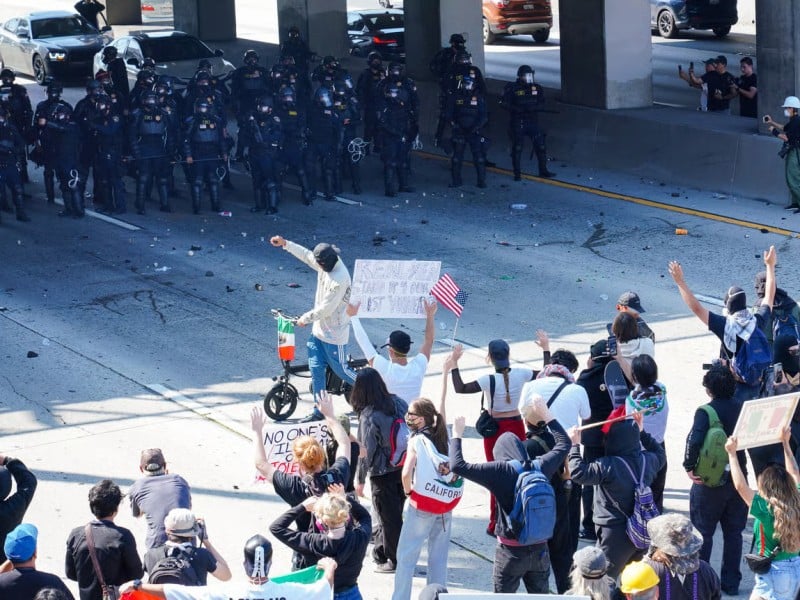What Puerto Rico Can Expect If Electoral Fraud Occurs in 2024
As Puerto Rico approaches its 2024 election, the political landscape is marked by a fierce contest between the ruling pro-statehood New Progressive Party (PNP) and the growing coalition of pro-sovereignty and progressive forces, primarily represented by the Puerto Rican Independence Party (PIP) and the Citizen Victory Movement (MVC).

Originally published in The Latino Newsletter–reprinted with permission.
Opinion for The Latino Newsletter.
As Puerto Rico approaches its 2024 election, the political landscape is marked by a fierce contest between the ruling pro-statehood New Progressive Party (PNP) and the growing coalition of pro-sovereignty and progressive forces, primarily represented by the Puerto Rican Independence Party (PIP) and the Citizen Victory Movement (MVC). With the island’s colonial status becoming an increasingly central issue, many anticipate a potential shift in political power.
Puerto Ricans are tired of the same PNP and Popular Democratic Party (PPD) duopoly.
They want change.
However, as Puerto Rico approaches the 2024 election cycle, concerns over potential electoral fraud have surfaced, particularly regarding the practices of the pro-statehood PNP, which has been accused of manipulating the electoral process by controlling the State Electoral Commission (CEE) and unilaterally amending the Electoral Code.
The Threat of Electoral Fraud
Among the most alarming tactics is the continued use of thousands of deceased voters. A recent investigation by the Centro de Periodismo Investigativo (CPI) uncovered that nearly 900,000 deceased individuals remain on the voter registry, with some voting in the 2016 and 2020 elections.
One particularly shocking example involved a voter who, according to records, would be 174 years old yet participated in the 2020 election. Despite public outrage and the CPI’s findings, accountability remains scarce.
Beyond using deceased voters, the PNP has employed various strategies to consolidate power. These include exploiting elderly voters by soliciting early voting ballots without their knowledge, trafficking personal voter information, negotiating with prison gangs for votes, and closing voter registration stations in opposition-leaning areas.
Additional concerns involve the physical manipulation of ballots, fraudulent absentee ballots, and limiting youth voter registration efforts. The PNP’s influence and control over public employees has also enabled them, via the “destaque” practice, to use government employees and resources for partisan gains.
Even when these practices are exposed, the party can reportedly rely on PNP-affiliated judges to dismiss investigations or halt any legal action that may affect them. This combination of tactics has led many Puerto Ricans to view the PNP as an organization that undermines and subverts Puerto Rico’s limited colonial “democracy.”
With this array of tactics, the PNP appears poised to exploit its control over the political, police, and electoral systems to manipulate the election results.
On September 25, 2024, a letter from members of Congress, led by Rep. Nydia Velázquez (D-NY), called on the U.S. Department of Justice (DOJ) and the U.S. Election Assistance Commission (EAC) to audit and observe the upcoming Puerto Rican election due to numerous allegations of electoral fraud, mismanagement, and voter disenfranchisement.
The letter highlights concerns stemming from the controversial 2020 Electoral Code, which unilaterally centralized control of the CEE under the ruling PNP, leading to claims of cronyism, corruption, and compromised voter participation. Specifically, the 2020 election saw widespread irregularities, such as unaccounted ballots and poorly trained staff.
The members of Congress argue that similar issues are already affecting the upcoming 2024 election and call for federal intervention to ensure compliance with voting rights laws and proper use of federal funds, emphasizing the need to protect the fundamental right to vote in Puerto Rico.
What Would Happen If Fraud Occurs?
If the 2024 election is tainted by fraud, Puerto Rico could witness unprecedented political unrest. The PNP’s grip on the judiciary could make legal challenges difficult, if not impossible, leaving many Puerto Ricans feeling powerless. But as history has shown, the Puerto Rican people are not easily silenced.
Here are five things that can be done:
- Mass Mobilization and Peaceful Protests: Peaceful mass protests are crucial. In 2019, Puerto Ricans united to oust Governor Ricardo Rosselló, demonstrating the power of collective action. Similarly, protests across the archipelago and among the diaspora can put immense pressure on the next PNP government, demanding transparency and integrity in the electoral process.
- International Appeals: Puerto Rico can appeal to the United Nations, the Organization of American States, and human rights organizations to investigate the elections. If fraud is proven, these institutions can apply diplomatic pressure on the U.S. government, whose responsibility it is to ensure the democratic rights of Puerto Ricans. This international spotlight can also create momentum for fair elections.
- Strategic Civil Resistance: Civil resistance, including strikes, sit-ins, and boycotts, could disrupt the functioning of the next PNP government. By making it difficult for a government to operate, the people can force a re-evaluation of the election results or push for new and supervised elections free from PNP control and influence.
- Legal Action: Despite the PNP’s control over the judiciary, legal challenges can be pursued. Documenting every instance of fraud and bringing the case to local, federal, and international courts could generate enough pressure to challenge the election results. Even if PNP-friendly judges dismiss cases in Puerto Rico, appeals to U.S. courts could succeed.
- Building a United Front: Unity is the key. Pro-sovereignty movements, opposition parties, civil society organizations, and everyday Puerto Ricans must work together. By focusing on the shared goal of defending democracy, the people can overcome the partisan divide and create a powerful movement.
The possibility of electoral fraud in the 2024 election is very real and is a direct threat to Puerto Rico. The PNP is determined to maintain power at all costs. But Puerto Rico’s history is filled with examples of its people rising up against corruption, colonialism, and oppression.
The future of Puerto Rico is at stake. The people must defend their right to free and fair elections. If the PNP acts with impunity, it is up to the Puerto Rican people to prove them wrong.
Democracy is not just a right—it is a responsibility. And it is time for Puerto Ricans to take that responsibility into their own hands.
The Latino Newsletter welcomes opinion pieces in English and/or Spanish from community voices. You can email them to our publisher, Julio Ricardo Varela. The views expressed by outside opinion contributors do not necessarily reflect the editorial views of this outlet.




